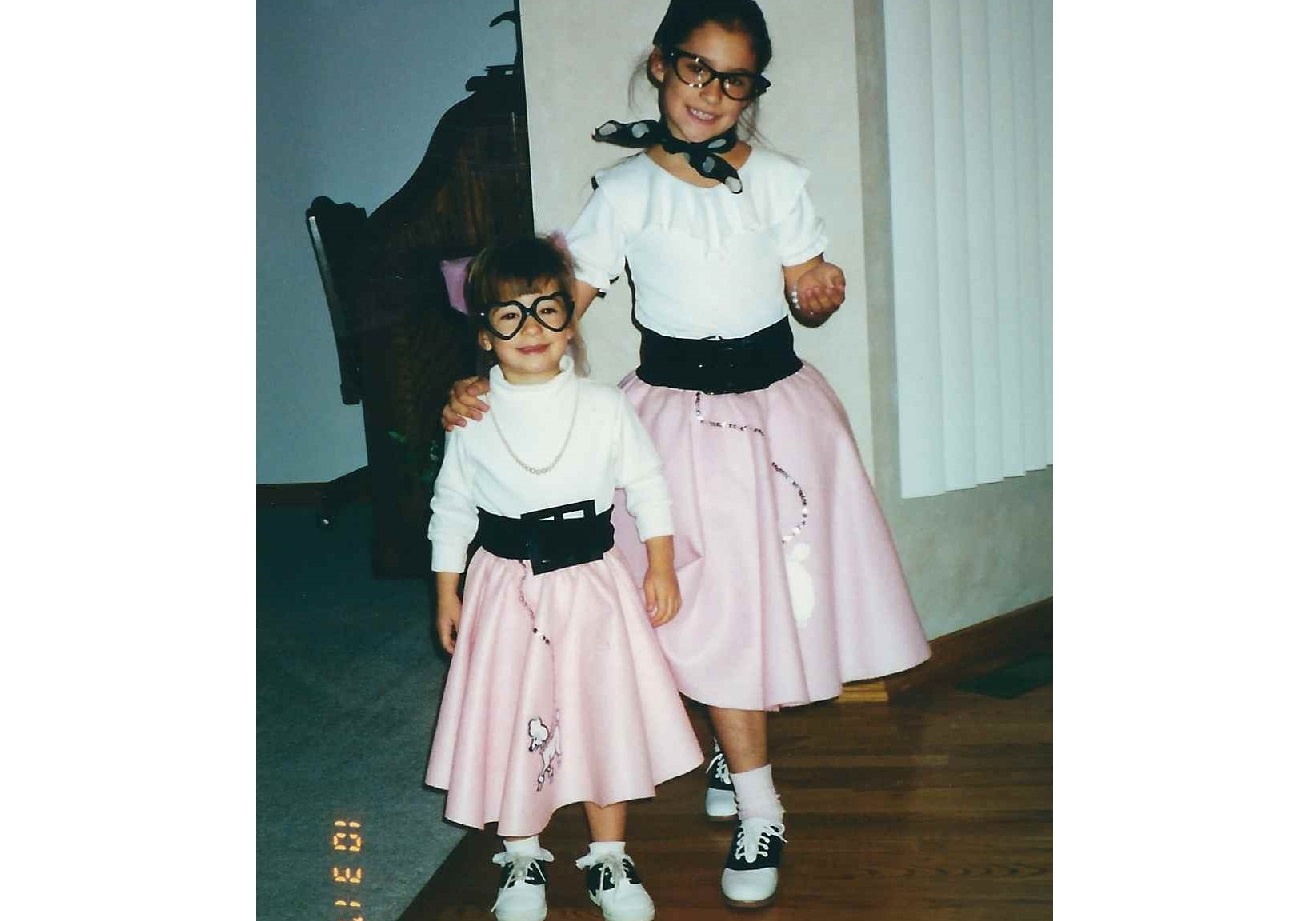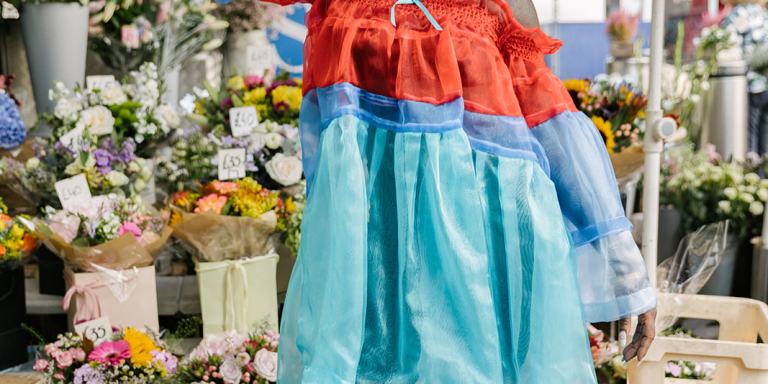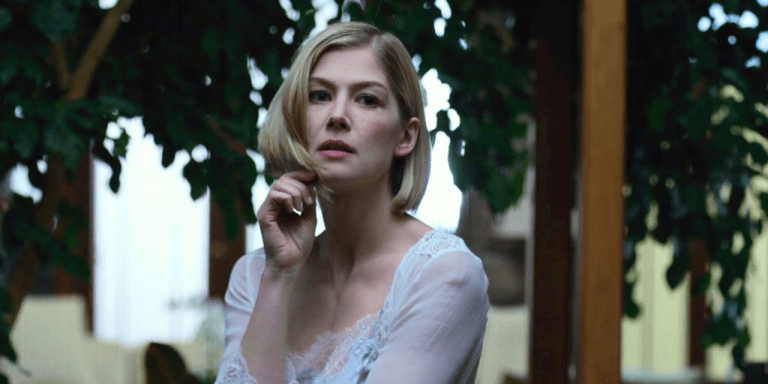
You wait, at first. You don’t say anything. Instead, you put Band-Aids on her skinned knees when she topples off her training bike, and kiss the swollen finger she slammed in the car door. When she is three and you are eight, and she asks you to share the bathtub with her, you do. And you splash warm water over her head and gently brush her thin brown hair with your fingers. Then you hug her. And you don’t say a thing.
Not until she’s old enough to understand. Not until she’s tired of wearing matching dresses that are too small or too big or too scratchy or too matching. Then you tell her that she looks good in the shorts and baggy t-shirt, that she can pull off the overalls and pigtails, that she can rock the boots with the sweater, or whatever else makes her feel confident.
You tell her that she looks beautiful, but not only beautiful. Strong. You tell her she looks powerful in her riding boots or intimidating in her pencil skirt and blazer. You tell her she looks feminine in her eighth grade formal dress and tough in her softball uniform. And you tell her that you are proud when she hits a triple, when she draws an amazing picture, when she receives an award for her grades. You teach her that it is not her body that makes her who she is, but her mind, her soul, the way she carries herself, the way she laughs, the way she loves, the way she listens.
When she is old enough, you tell her the truth. That our bodies are impermanent, all we are given. But that our bodies are what make us unique. You tell her that her worth is beyond her body. But that she must treasure this body, love this body.
When she is old enough, you tell her about your pain. The calories you counted, the scales you stepped on, the tears, and the times you cursed the mirror, wishing to be someone else. But more importantly, you tell her your triumphs. The times you let go of that reflection and celebrated your budding hips, your curves, your wonderful body that had finally discovered how to love itself. You tell her the way you learned to run with passion, rather than hate. The way you learned to enjoy food, enjoy exercise, enjoy life in a healthy balance.
You tell her how wonderful her body can be. How she can dress it up or dress it down. How she can cut her hair or leave it long. How she can wear heels or gym shoes. You tell her how electric, how dizzying, how mesmerizing her body can be. You tell her to be proud of this body. You tell her to be careful.
One day, you tell her how it feels to be touched. The rush of warmth that will come when a hand that loves her connects with hers. How her skin will tingle when someone she cares about runs his fingertips across her neck and draws her in for a kiss. How beautiful this all is, at the right time.
One day, you tell her the mistakes you have made. You tell her how it feels to be broken. How it feels when you’re not ready, when you’re terrified, when you’re alone. You tell her how it feels when you give your body to someone who shouldn’t have it, when you feel empty, when you have to learn to build yourself back up again, piece by piece.
But you tell her that she is always whole, even if she feels broken. That her body is the shell that protects her heart, that her body is the beautiful casing that hides her, but also sets her free.
You tell her that she is beautiful, that she is strong, that she is a woman, that you love her. You tell her that she should celebrate her body, love her body. But you tell her this: she will always be more than just a body. And she will always be your little sis. ![]()





